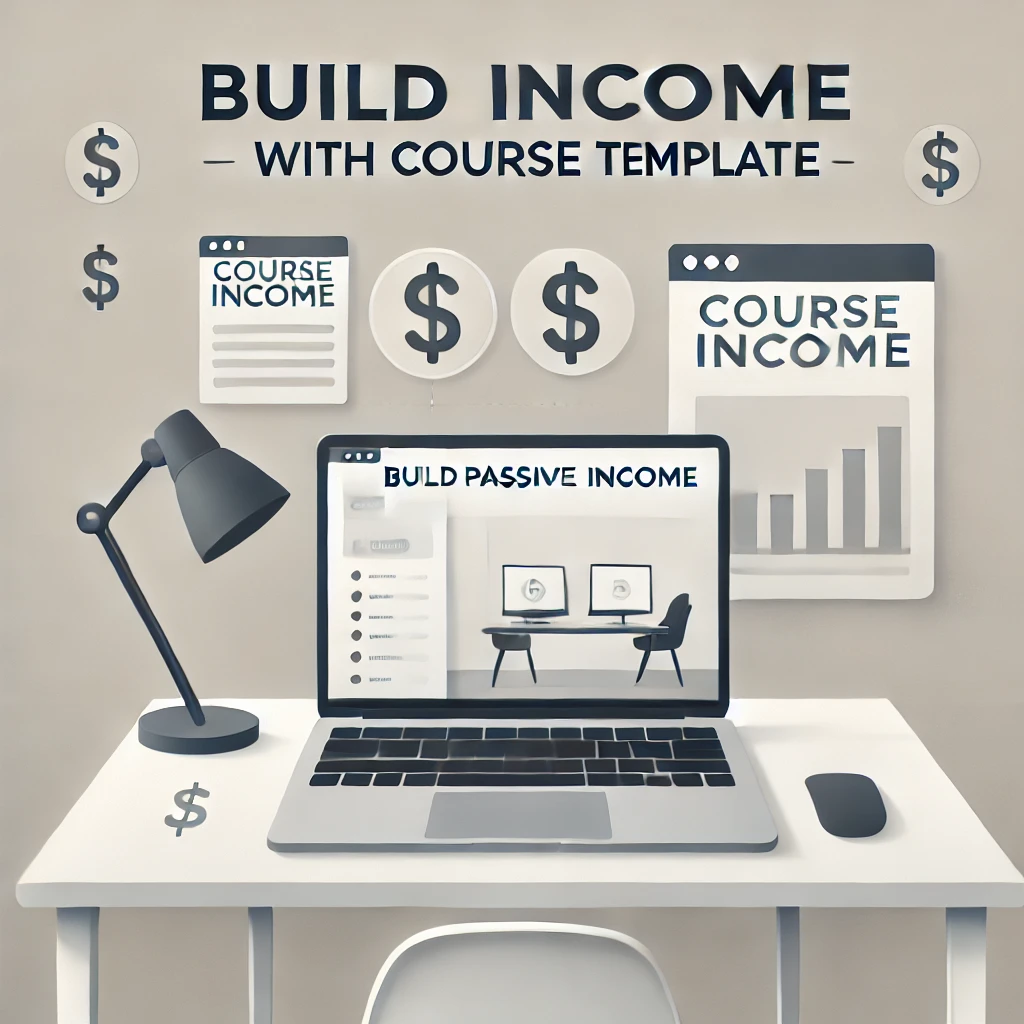 Building a Sustainable Business Selling Online Course Templates
Building a Sustainable Business Selling Online Course Templates
Dream of earning income while you sleep? Selling online course templates could be your golden ticket. Imagine creating something once and generating revenue month after month. But how do you make it sustainable? Let’s dive in.
In this article, we’ll cover how to build a profitable business selling online course templates. With the growing demand for online education, there’s never been a better time to start. You’ll learn practical tips for building, marketing, and sustaining a business that can become a reliable source of passive income.
1. Understanding Market Demand
People are increasingly looking for ways to share their expertise online, but creating a course from scratch can be daunting. Course templates make it easier, offering ready-made structures that users can personalize. By selling templates, you’re providing a solution that saves time and helps people launch their courses faster.
2. Finding Your Niche
A sustainable business often begins with a niche. Some audiences may want templates for corporate training, others for wellness or creative courses. Choosing a specific niche lets you create templates that serve a particular audience’s needs. It also makes it easier to target marketing efforts and build customer loyalty.
3. Designing High-Quality Templates
Quality is essential. People expect templates to be professional, easy to use, and customizable. If design isn’t your strength, consider hiring a professional. High-quality templates create positive impressions, encourage repeat business, and lead to positive reviews—essential for growth.
4. Building a Brand
A strong brand attracts customers. Develop a unique brand identity with a logo, colors, and messaging that resonates with your audience. A clear brand communicates your value and differentiates you from competitors, making your business more memorable.
5. Setting Up a Marketing Funnel
A marketing funnel guides potential customers from awareness to purchase. Start with valuable content like free guides related to course creation. Direct traffic to a landing page where people can learn more about your templates. A well-designed funnel builds trust and leads to sales.
6. Using Social Media and Content Marketing
Social media helps you reach your target audience. Share tips, success stories, and sample templates on platforms like Instagram, LinkedIn, and Facebook. Creating blog posts, videos, or podcasts on course-related topics can establish you as an authority and drive organic traffic.
7. Optimizing for SEO
SEO (Search Engine Optimization) attracts long-term traffic. Use relevant keywords to help potential customers find your site. Incorporate these keywords into product descriptions, blog posts, and landing pages to increase visibility on search engines.
8. Providing Great Customer Support
Even though templates are passive products, customers may have questions. A responsive support team builds trust and encourages positive feedback. FAQs, email support, or live chat options help address customer needs and foster loyalty.
9. Scaling with Automation
As your business grows, automate where possible. Use email marketing to update customers on new templates. Automate payment processing, customer onboarding, and parts of customer support to save time and reach more people without sacrificing quality.
10. Gathering Feedback for Improvement
Customer feedback is essential for growth. Regularly ask customers for input on what they like and what could be improved. Incorporating feedback shows you value your customers and helps build a loyal community.
And finally.
Selling online course templates is a great way to build a sustainable, passive income business. By focusing on quality, effective marketing, and continuous improvement, you can create a successful business that helps others reach their goals. Start small, stay consistent, and watch your business grow as you help others realize their dreams.
Ready to start? Begin your journey now and create a product that can make a lasting impact—and generate revenue.